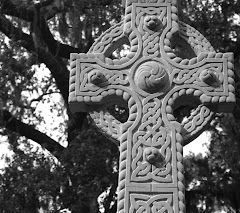SUMMARY

God calls His people to be light for the nations, but in the story of Jonah, we see someone who was light-resistant. We are familiar with the story of Jonah, at least the first half of the story. It is one of the few OT stories that make into children’s Bible story books. It’s a favorite for Sunday School because it inspires such neat crafts. However, what we tend to focus on is not really the focus of the story.
I believe the primary focus of the story is God’s compassion for the nations and Jonah’s resentment of it. We see the compassion as the story ends with the LORD asking Jonah, “should not I pity Nineveh, that great city, in which there are more than 120,000 persons who do not know their right hand from their left?” And we see the resentment when Jonah, in anger, confessed that he fled for Tarshish because he knew God was merciful and did not want Him to be.
Along with that, we find a secondary focus on repentance. The Ninevites - the brutal, pagan enemy of God’s people, whose wickedness apparently ‘stunk to high heaven’ (in that it came up before the Lord) – repented as soon as they heard the word of the LORD. And yet, how many prophets had spoken to the people of Israel to no avail? Repentance is therefore called for from Jonah, from Israel and from all who read this story. (to read the story, click the picture)

Jonah is a portrait of how not to be a missionary. Jonah was light-resistant. As we read his story, we see his negative attributes.
*We see Rebellion. God clearly gave him a calling and he willfully rejected that calling and ran away from God.
*We see Fear and Hatred. Not only was Jonah afraid to go to Nineveh, he hated the people of Nineveh. To him, they were not broken human beings in need of God’s compassion, they were the enemy, outside of his concern and God’s compassion.
*We see Resentment. Jonah resented the LORD for being who He was. He resented the LORD showing compassion and pity to those who Jonah thought should have been shown the edge of a sword or a ball of fire from heaven.
*We see Hard-Heartedness. Jonah, in this instance, was not acting like a man after God’s own heart. His heart was hardened to the objects of God’s mercy and to God’s mercy itself. He would have rather died than to see God bless his enemy.
*We see Provincialism. Jonah wanted God’s mercy to be confined to the borders of Israel.
*And we see Selfishness. Jonah was more concerned with his own comfort that with the 120,000 lives in the city.
At the end of Jonah’s story, we are left wondering if and hoping that Jonah repented. But a bigger question is: are we willing to repent? Can we see, in Jonah’s failures, some of our own? Are we willing to turn away from them?
Do you have a heart for the lost – a heart like God’s? If the answer is “no”, then you need to ask God to change your heart. To follow God in mission, we must have a heart like His – one that is gracious, compassionate, slow to anger and abounding in love and forgiveness.POINTS TO REMEMBER
We see the negative attributes in Jonah, but the real question is can we recognize them in ourselves? Aren’t we often like Jonah?
*We drag our feet at God’s calling or even try to run away. We ignore the calling of God upon our lives. We try to dismiss or explain away God’s voice.
*We are afraid. We fear interacting with people who might reject us or hurt us.
*We struggle with hatred. It’s ok when God calls us to work with impoverished people or orphans or people who show up at our doorstep, but not so ok when called to minister to people who are hostile to us (who vote differently that we do or who practice lifestyles we don’t approve of).
*We sometimes resent God’s mercy. Like the older brother in the Prodigal Son or the Pharisees, we wonder: “How can God love those kind of people?”
*We can be hard-hearted. Do we have a heart for the lost like God does? Does Christ’s love truly compel us to be the light of the world?
*We can be provincial. We want to restrict God’s activity and His mercy to the walls of our church.
*And we can be selfish. We like things our way. We like to be comfortable. Too often, we in the Church are more concerned with the songs we sing (or don’t sing) or with our buildings or our appearance than we are with those who are lost and dying.
Far too often the Church, called to be the light of the world, is light-resistant.
We, who know we are loved by God – who are called His Bride, His Friends, the Redeemed, must also realize that He also loves the world. “For God so loved the world that he gave his one and only Son, that whoever believes in him shall not perish but have eternal life.” It is precisely because God loves the world, because He has compassion on the lost and pities the broken; it is precisely because He is “a gracious and compassionate God, slow to anger and abounding in love, a God who relents from sending calamity” that we ourselves are saved. Why do we horde the Good News of that grace?
We are blessed with mercy so that we will be a blessing – not just to people who are like us – but to the hostile, messed-up, wicked culture that surrounds us.

1 comment:
This is really excellent, careful thought.
Thanks Michael. You are a great example to me.
Christian
Bosox to the World Series :)
Post a Comment